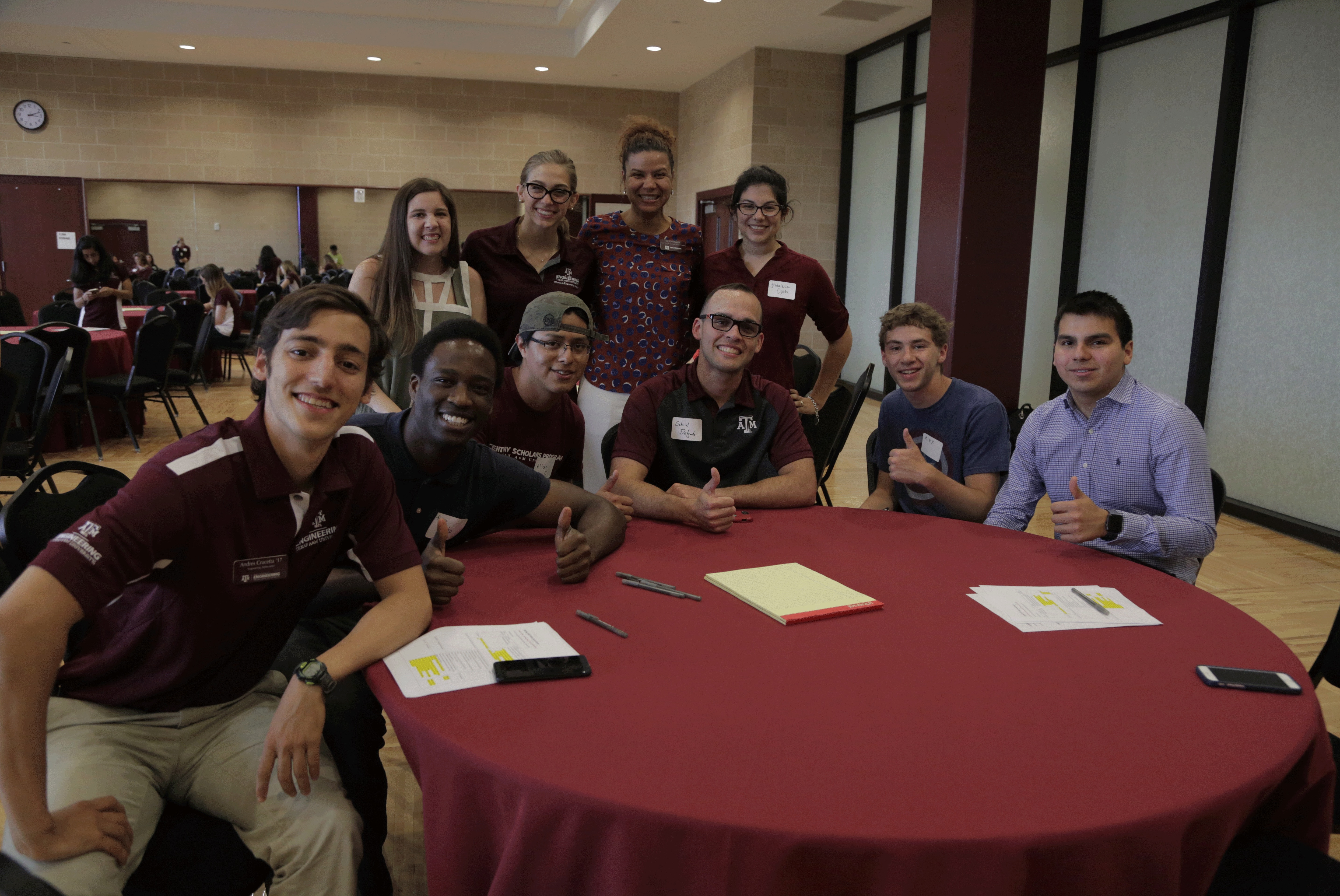
As part of the Texas A&M University College of Engineering’s effort to enhance the educational experience of its students through its 25 by 25 initiative, the college has launched the First-Generation Engineering Student Mentoring Program (FGEn).
“While mentoring programs were offered in the past, this one is specifically for first-generation college students,” said Dr. Bimal Nepal, Phillips ’66 First Year Engineering Faculty Fellow, associate professor of Industrial Distribution and program lead of FGEn. “This program is designed to help them not only transition to college life but to help support their academic success.”
First-generation students are the first in their families to attend a formal university-level degree program (or earn a degree). The college of engineering is home to more than 20 percent first-generation students.
The FGEn program is designed to enhance a first-generation engineering student’s educational and social experiences on campus to help them achieve their personal and professional goals. Students are paired with a faculty or staff member seasoned in student advising. Currently there are more than 40 mentors who have signed up for the program and many of them are first-generation graduates themselves. The mentors will help students leverage college and university resources to help them succeed personally, academically and professionally. In addition to faculty and staff mentors, a group of 50 junior and senior engineering students serve as peer mentors. By associating with academically successful students, FGEn participants receive first-hand advice from their peers, further helping ease the transition from high school to college.
Each semester, the students will also attend mentoring events along with multiple activities focused on enhancing student academic success, improving campus lives, and providing them with social and professional networking opportunities. By participating in this program, students will learn valuable networking and communications skills.
“Often, adjusting to college is overwhelming for students just because they are unaware of the resources and tools available to help them on campus. Our goal is for the mentor to be that resource and help make this transition easier,” said Nepal.
Interested first-generation engineering students, both fall 2017 entering freshman and current engineering students, can get more information and apply for this program here.